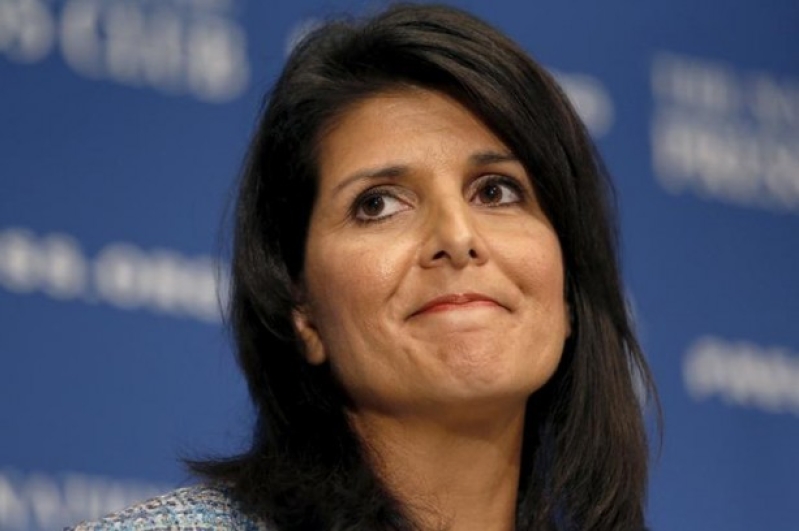
Donald Trump has chosen Nikki Haley for the United States' next ambassador to the United Nations. Haley, governor of South Carolina, is under liberal fire for her pro-life stance. Particularly, for her denial of abortion as a human right.
Reportedly considered a vice presidential candidate by Mitt Romney and even a presidential nominee herself, Nikki has unquestionably ample experience for her 44 years. And, thus far, her life has been an exciting and unusual one. Born in 1972 to Indian immigrants in South Carolina, Haley became one of the few Indian-American governors, second only to Louisiana's Bobby Jindall. Since then, she has capably and vehemently opposed abortion, with the exception of the case for the mother's life. Although Haley converted to Christianity as an adult, it was her husband, she credits, for having first made an unforgettable impression on her view of the subject: "In politics people assume that if you're a Republican you're pro-life because the party tells you to be. I'm pro-life because I got a chance to spend every day with the love of my life knowing that I am blessed that someone saved his life. I would be lost without him. I believe every life has a value and is blessed by God."
Now, as Trump's chosen ambassador, Haley's desire to limit abortion-accessibility on an international level is inflaming concern among those who perceive abortive services to be an entitlement. Haley, however, contends for alternative options: "I am strongly pro-life, so anything we can do to keep from having abortions, or to keep them from not knowing what is available, I will support."
The determinant issue in this case, then, is a definition of a right. As in all attempts to better understand our government's legal intentions, we must return to historical context. All of our forefathers and documents of the time depicted rights simultaneously as inherent and inalienable. These terms inferred the obvious: that all true rights existed by the consent of nature (endowed by our Creator), to be attained by pursuit. This pursuit, in turn, supported the assumed mentality that any right, to be liberating at all, must also be voluntary. Indeed, any forced right would serve only as an antithesis to this truth, and defeat what even later presidents, such as Franklin Roosevelt, acknowledged the right of conscience:
"We want to do it the voluntary way - and most human beings in all the world want to do it the voluntary way. We do not want to have the way imposed...That would not follow in the footsteps of Christ."
Does abortion oppose any view of natural law? Furthermore, does funding and enforcing it through force in any way impinge on the freedoms of others? In the view that the taking of an innocent life directly robs another of the inalienable right to life negates the possibility of its being pursued and it would seem that, for the thoughtful and honest reviewer, the conclusion is obvious: Nikki Haley is "right."
"Thou art become guilty in thy blood that thou hast shed; and hast defiled thyself in thine idols which thou hast made; and thou hast caused thy days to draw near, and art come even unto thy years: therefore have I made thee a reproach unto the heathen, and a mocking to all countries." Ezekiel 22:4






